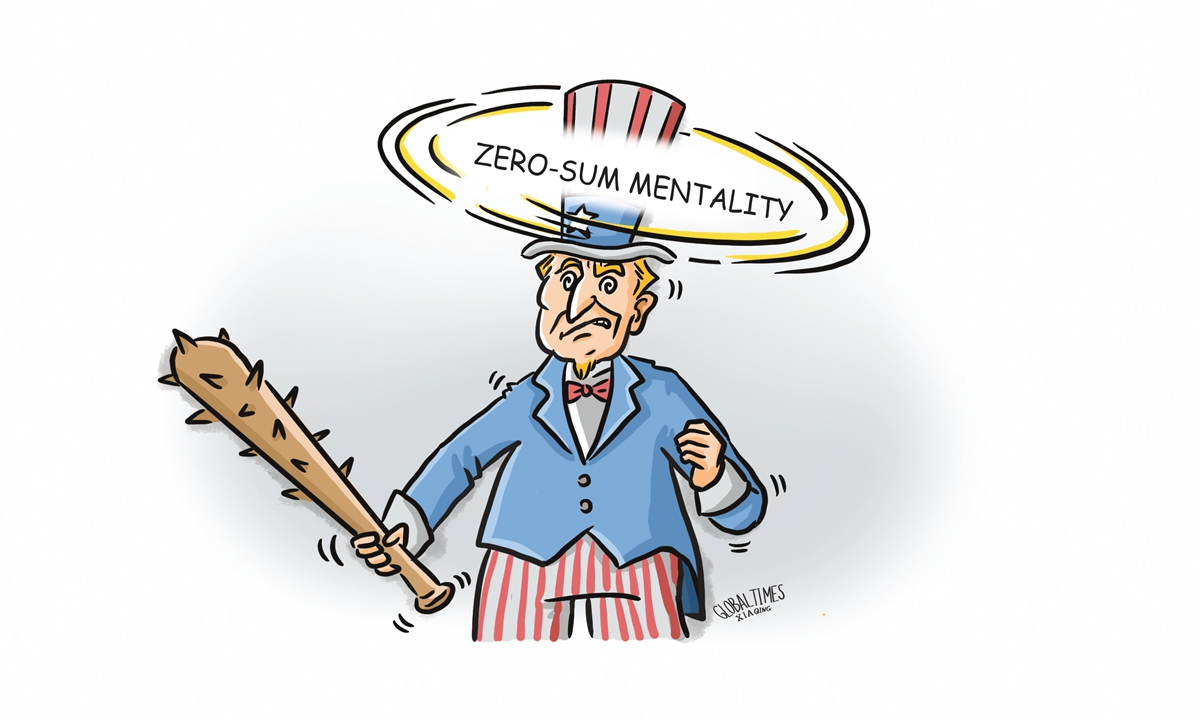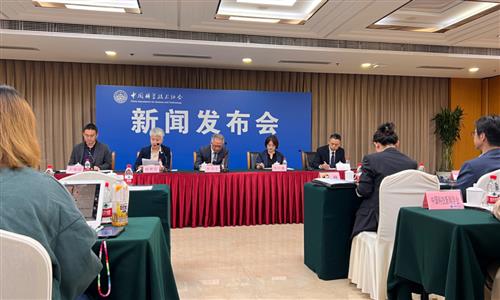
Illustration: Xia Qing/GT
A bipartisan group of US lawmakers on Monday called on the US Commerce Department to investigate "national security threats" from China's development of silicon photonics technology, a fast-developing field that has the potential to accelerate artificial intelligence (AI), Reuters reported.This attempt to extend the "threat" rhetoric and suppression of China's technological development into new fields is seen as an expansion of the US tech war. The misguided perception among certain US politicians that labels other countries' legitimate efforts to promote technology development as "potential threats" has no basis and stems from a zero-sum mentality that has been taken to extremes.
Washington's tech war and broader efforts to curb the technological development of China are driven by their irrational anxiety about the solid pace of China's technological advancement. But no level of technological hegemony can hinder the development of China's silicon photonics technology and other fields.
"The dual-use nature of photonics technology makes it particularly susceptible to military end-use diversion by problematic actors," Representatives John Moolenaar, a Republican, and Raja Krishnamoorthi, a Democrat, wrote in their letter urging the US Commerce Department to examine "national security threats" from China's development of silicon photonics technology, according to Reuters.
Basing claims on assumptions rather than facts, and using "dual-use nature" as an excuse, are typical elements that constitute the "threat" narrative being concocted by certain American politicians. The intention of US politicians this time is to set the stage for arbitrary moves to curb and suppress China's legitimate rights to develop in the field of silicon photonics technology.
For a long time, the US has wantonly linked economic and trade issues to national security, abused regulatory measures, and conducted political interference into normal economic, trade and technological cooperation, suppressing and hindering the efforts of other countries in technological and industrial development.
What is even more concerning is that this distorted mindset among American politicians has escalated to a somehow extreme level - any country that will potentially surpass the US in certain technology field could be viewed as a "threat" to the US. This harmful zero-sum mentality will severely undermine international scientific and technological cooperation and exchange, leading to a lose-lose situation.
Although the relentless imposition of restrictions by the US has had a certain impact, some American institutions have already pointed out that the US is losing its tech war against China, as the structure of the global value chain makes it difficult for the dominant countries to coerce the rising countries without provoking resistance from its own enterprises, while the latter are more likely to upgrade their industries.
Cooperation in global industrial and supply chains, as well as technological development, is primarily driven by market forces rather than the calculations of certain politicians. An increasing number of examples show that Washington's tech war and efforts to exclude China from global supply chain cooperation are destined to fail.
Silicon photonics technology, as a cutting-edge field, is still in the exploratory stage of research and application, and there is still a long way to go before it can be widely applied in high-tech industries such as AI.
The efforts of various countries in this field are based on a shared pursuit of technological advancement, rather than posing a threat to the national security of any particular country.
The reason why certain US politicians find excuses to impose restrictions on normal international cooperation in this field is that the rapid development of technology in China has caused anxiety and unease among them. They are narrow-minded and short-sighted, unable to tolerate the legitimate progress of China's technological development.
However, despite facing intensified restrictions and challenges from the US, China's progress in the field of technology is gaining pace. There are reports that Chinese companies are making breakthroughs and progress in the development of silicon photonics, which could help the country overcome current technical barriers in chip design.
The author is a reporter with the Global Times. bizopinion@globaltimes.com.cn



